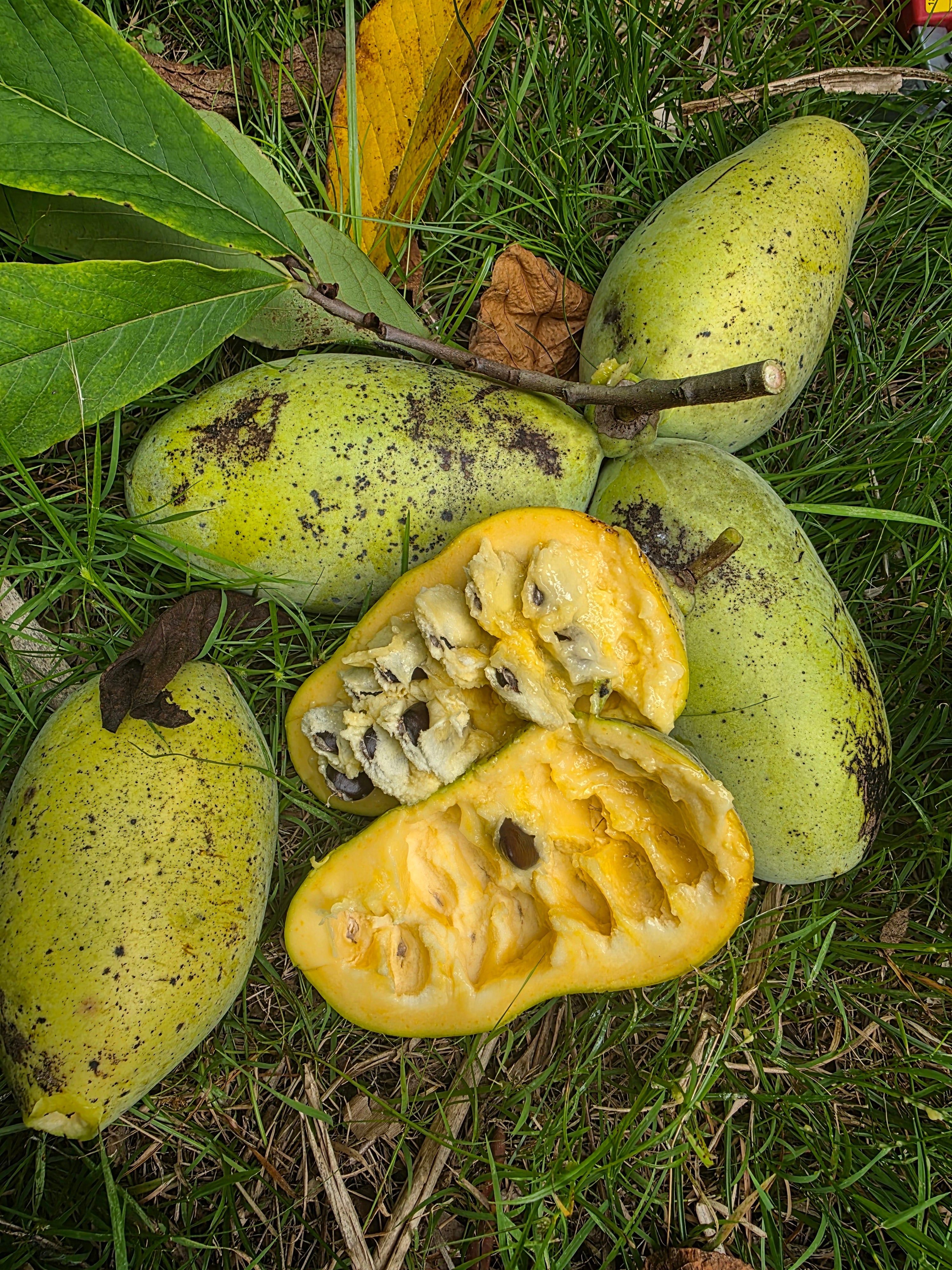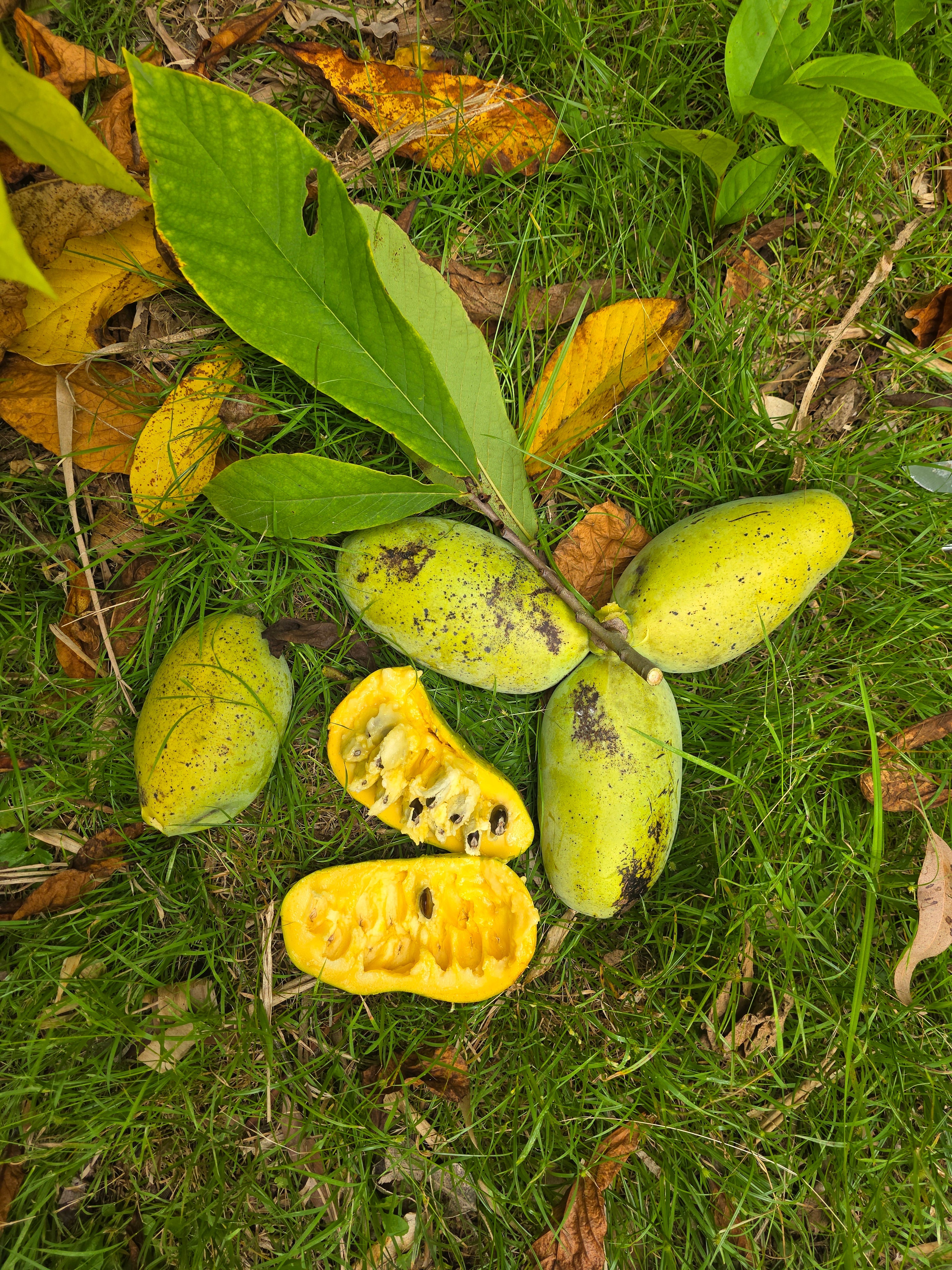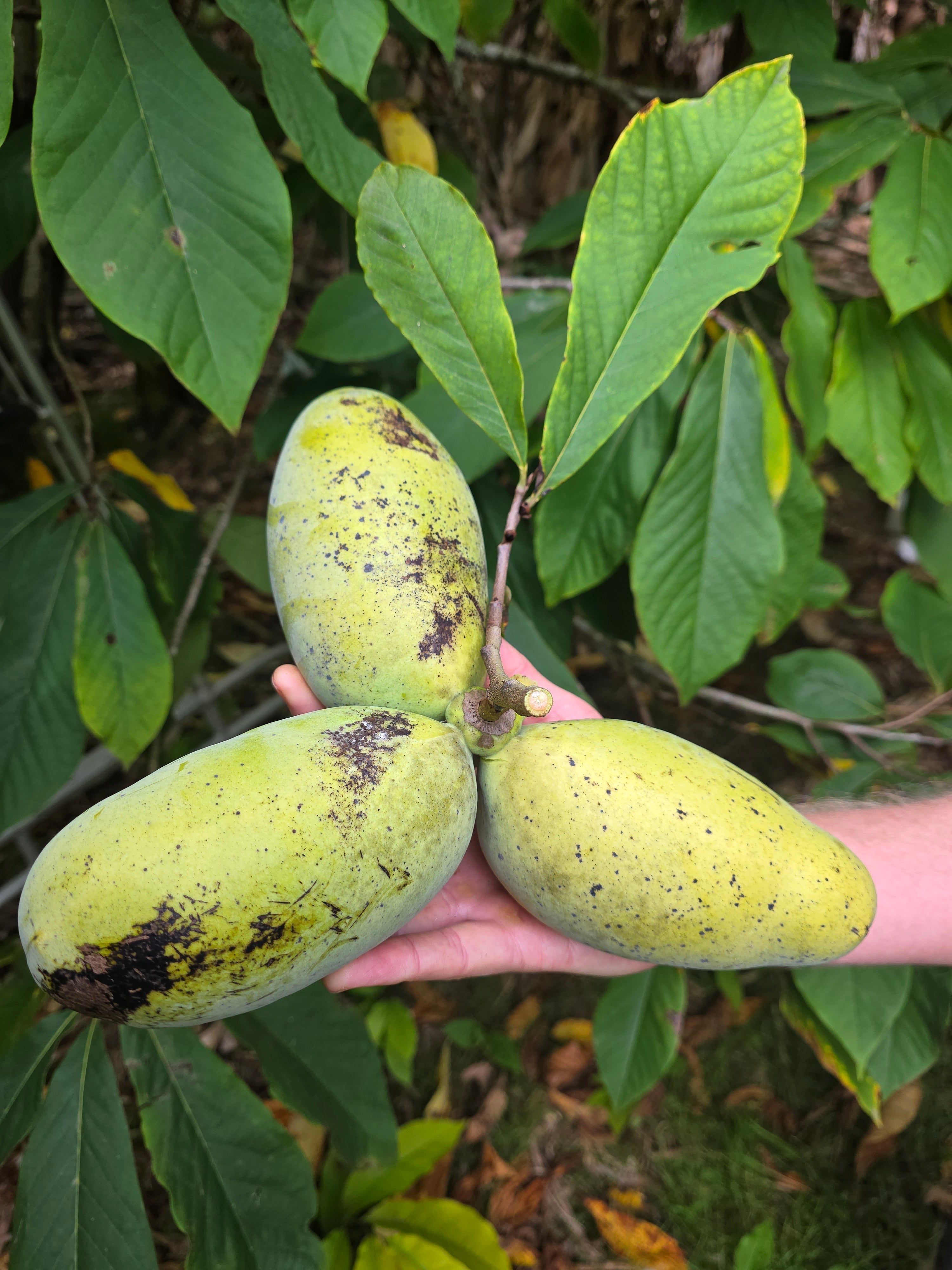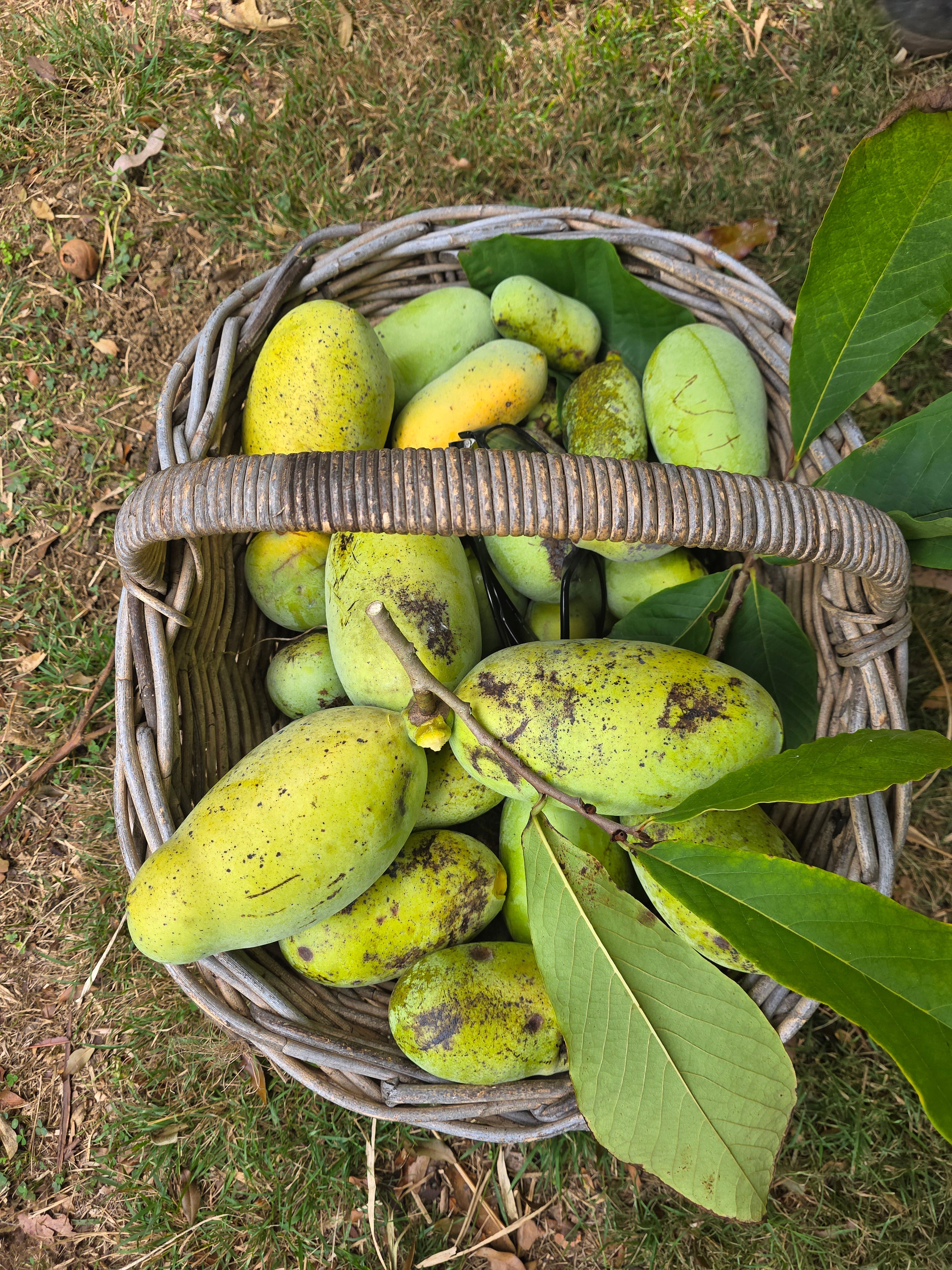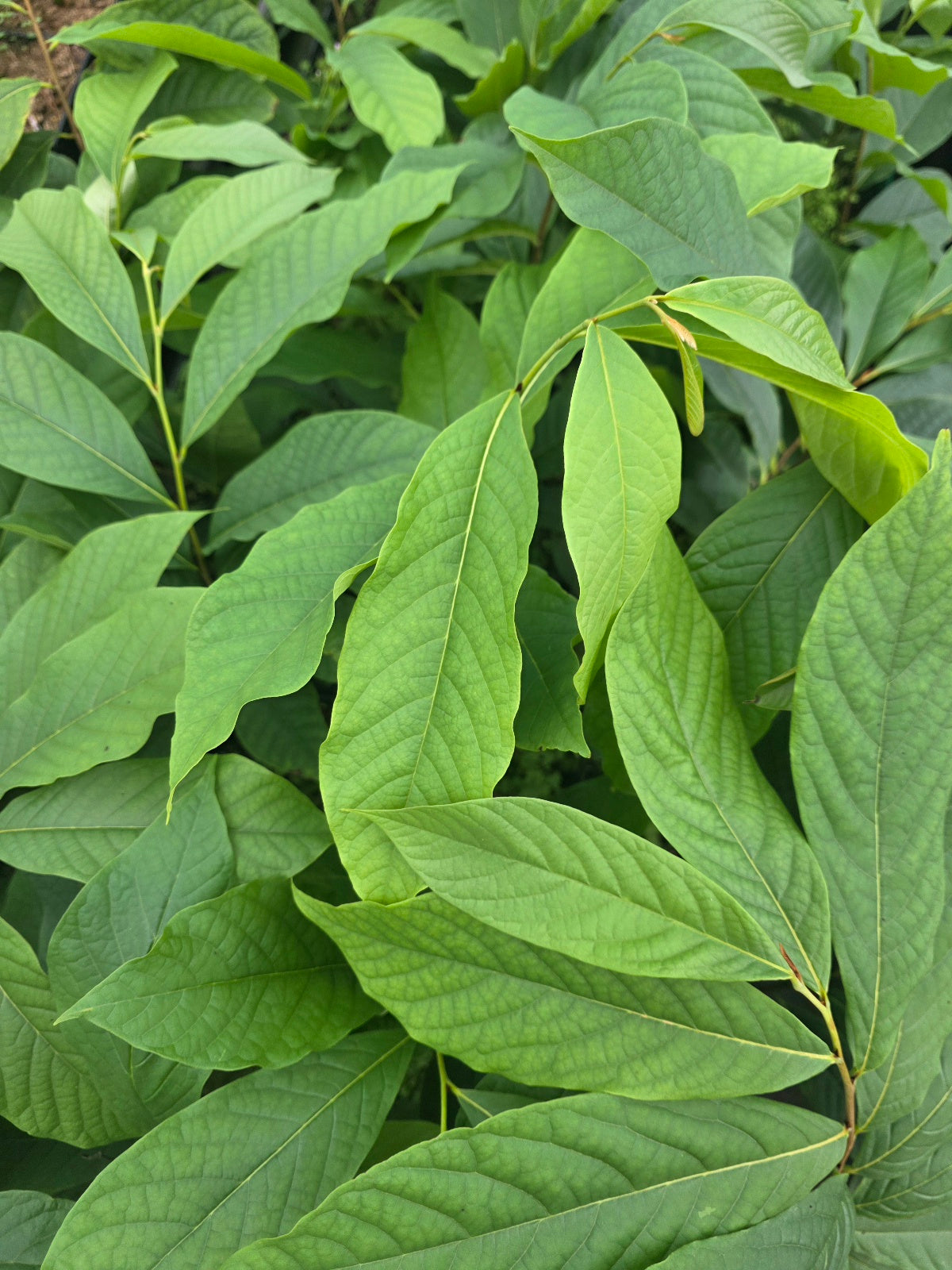American Pawpaw - Cold Hardy
- Regular price
-
$49.00 - Regular price
-
- Sale price
-
$49.00
Couldn't load pickup availability
The American Pawpaw (Asimina triloba) is a unique and flavourful fruit-bearing tree that is native to the eastern United States. In New Zealand, its growth habit is a small-medium bush, with a spreading habit, and a thick, dense canopy. The leaves are large, dark green, and glossy. In spring, the tree produces clusters of large, maroon-coloured flowers that are pollinated by flies and beetles. These flowers give way to the fruit, which is oblong and around 6 inches long. The fruit has a creamy, custard-like texture with a flavour that is similar to a banana or mango. It is high in vitamins and minerals, making it a healthy and delicious addition to any diet.
The American Pawpaw tree is cold hardy (down to -20C), so you can grow this in any part of New Zealand including the cold South, where frosts and snow are common. They can grow in a variety of soil types and climates and are tolerant of a part shade planting location (though full sun is best). The tree is also relatively disease and pest-resistant, making it a low-maintenance choice for home gardens and orchards. Two trees with different genetics are required for pollination. Our trees are seed-grown, which means each one is genetically unique so can pollinate each other.
